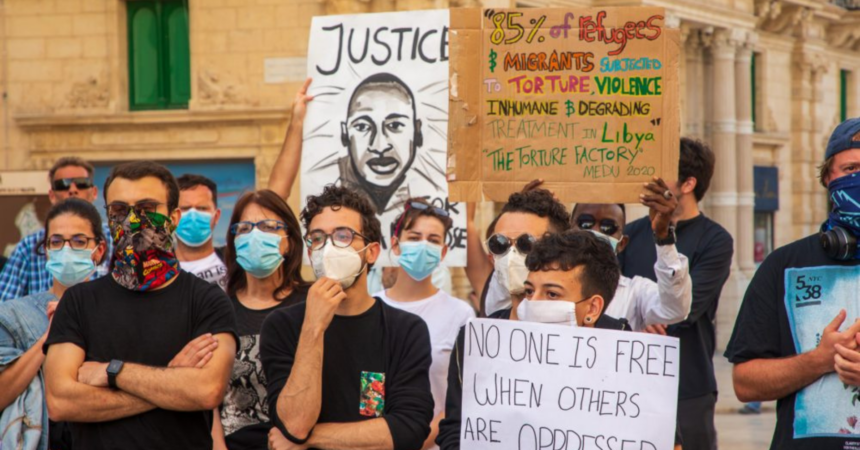Four years have passed since Lassana Cisse, a 42-year-old man from the Ivory Coast, was murdered while walking home in Birżebbuġa. The two suspects, off-duty Armed Forces of Malta (AFM) soldiers, are out on bail, still yet to face any form of justice for their alleged racially motivated crime.
Forty-four NGOs signed a joint press statement on Thursday in remembrance of Cisse, in which they condoned the “excruciatingly slow wheels of justice”. They said the “heinous act was intended to terrorise and instil fear within the black migrant community”.
The NGOs claimed that Malta had fostered a climate of institutionalised racism, with the crime “fueled by years of political rhetoric and inhumane immigration policies that suggested that migrants of colour and black migrants may be treated as inferior people.”
They called on the government to “stress that racism and prejudice will not be tolerated,” saying that “words are simply not enough” and that the government “must demonstrate its commitment to ensuring that justice is served and that such acts of racial violence will not go unpunished.”
To illustrate their claim, Aditus Foundation, one of the signatory organisations, compiled a timeline of events on widely reported instances of institutionalised racism or neglect in Malta.
In their statement, the NGOs welcomed the recent launch of an ‘anti-racism strategy’ for 2021-2023 by the Ministry for Equality, Research and Innovation, at the time headed by minister Owen Bonnici, now administered by Byron Camilleri.
Despite this strategy, the NGOs said that “real change requires a transparent review of all structures, policies and social norms, and a concerted effort to address systemic racism at its roots.”
The suspects in the Cisse murder, Francesco Fenech and Lorin Scicluna, at the time 21 and 22 years old, have pled not guilty to the charges of murder and attempted murder of Cisse. They have been out on bail since December 2019.
The lethargic pace of the authorities is further illustrated by the fact that Cisse’s body was only returned to his family and home country in July 2022, more than three years after his murder.
The issue of racism prevalent in Malta is abetted by unchecked widespread and racially motivated hate speech online, further encouraged by closed-port and pushback policies adopted by the government.
Such policies have only intensified under Prime Minister Robert Abela’s premiership, with asylum seekers facing a rejection rate of 76% for 2021, up from 10% in 2016, according to data from the Asylum Information Database.
Former President Marie-Louise Coleiro Preca is among the signatories that include aditus foundation, African Media Association Malta, Alleanza Kontra l-Faqar, Caritas Malta, Dar tal-Providenza, Good Shepherd Sisters – Dar Merhba Bik Foundation, JRS Malta, Kummissjoni Ġustizzja u Paċi, Malta LGBTIQ Rights Movement, Migrants Commission, Office of the Dean Faculty for Social Wellbeing, Office of the Dean Faculty of Education, The Maltese Association of Social Workers (MASW) and Victim Support Malta.














Soldiers going out hunting black people are continuing to enjoy life indefinitely but a journalist publishing information in self defence (and in the public’s interest) is indicted with lightning speed. Yes, the publication was forbidden even though it was completely irrelevant to the case for which it was forbidden. However, self defense overrides proscription. Something the soldiers cannot claim.
The wheels of justice in Malta are triangular shaped, that explains why justice hardly moves!